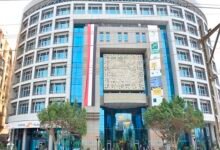Agricultural Insurance Fund to be operational next year – NIC Boss

An operational and governance document to guide and help the implementation of the country’s Agricultural Insurance Fund (AIF) is being developed.
The Acting Commissioner of Insurance, Michael K Andoh, who disclosed this in Accra on Tuesday when the NIC and Policy Link signed a Memorandum of Understanding to that effect, said the AIF operational governance framework would be ready by September next year.
He said the Insurance Act 2021 (Act 1061) enjoined the Commission to set up an Agricultural Insurance Fund to help provide insurance for farmers in the country.
Mr Andoh said the AIF would be launched immediately after the operational and governance guidelines were completed.
According to the Acting Commissioner of Insurance, the AIF operational and governance document, would among others, define the crops to be insured, the number of farmers to be insured and the premiums to be paid by farmers.
He said agriculture remained the backbone of the Ghanaian economy and provided jobs for the majority of the people and also sustained livelihoods.
Mr Andoh said the establishment of the AIF represented a significant milestone in promoting agriculture, saying the fund would serve as a crucial safety net for the players in the sector and provide them with resilience.
He said the sector was faced with a myriad of challenges, such as diseases, pest, drought, unpredictable weather patterns, and climate change, which jeopardised food production and security.
The aforementioned issues made agriculture unattractive to receive funding from the financial sector.
Mr Andoh said the signing of the MoU with Policy Link showed the commitment of the NIC to actualise the AIF and make agriculture viable to help farmers attract funding for the financial sector.
He said the AIF would help agricultural insurance to be affordable so that smallholders could buy insurance for their farms to protect them against losses.
The Country Lead of Policy Link, a development organisation being funded by the United States Agency for International Development, Yunus Abdulai, symbolised the commitment of the two organisations to promote agriculture and food production to enhance food security of the country.
Mr Abdulai said the AIF would ensure financial inclusion was essential in the country’s quest to grow Ghana’s economy, particularly in a sector that provided livelihoods for nearly 40 per cent of the country’s population and contributed about one-fifth to Gross Domestic Product.
“Despite its importance, the agricultural sector remained vulnerable to climate-related risks, such as drought, excessive rainfall, floods and wildfires, threatening food production security,” he said.
Mr Abdulai said the AIF was essential and could empower farmers, especially small holders, to effectively manage climate-related risk.
He said the current premiums on agriculture insurance were above the reach of many smallholder farmers who were the backbone of Ghana’s agricultural activities.
STORIES: BY KINGSLEY ASARE







